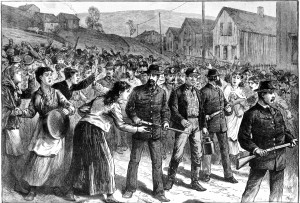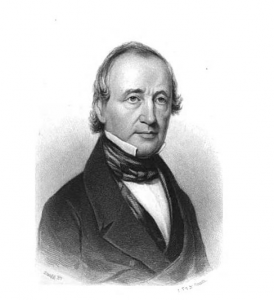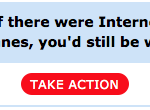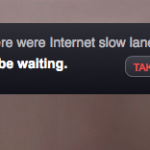The debate on net neutrality is old news by now, and perhaps even John Oliver has accepted that Federal Communications Commissioner Tom Wheeler seems unlikely to change his mind. But supporters of net neutrality have shown comparable iron will: The protest today staged by Netflix, Reddit, and Vimeo (among others) could be an important step towards ensuring a free and open Internet. But beyond that, we all might look to the development of public education for a preview of coming attractions.
Like the Internet, public education in America has never been taken for granted. It may surprise you to know, for instance, that the Department of Education (as an office of the executive branch) is only 34 years old. There did exist an Office of Education, established in spent the first half of the 20th century as a refugee: rejected by the Department of the Interior, adopted by the Federal Security Agency, then (in 1953) poorly redefined as the Department of Health, Welfare, and Education. Thus, with America’s 19th century population boom (it more than tripled from 1840-1900), those who traveled far and fought hard for American citizenship found no education at the other side of the border.

They may not have been surprised, though. If any immigrant, freed slave, or Native American had read either the Constitution or the Declaration of Independence, she would have found no promise of education, no mention of “education” even once. Thomas Jefferson supported the idea in later writings as a tenet of “the preservation of freedom and happiness,” but even so, was suspicious of compulsory education for all citizens. This view stalled the debate for at least another century.

After all, something offered for free isn’t necessarily accepted as a public good, and as any serious debate unfolds, the two sides will invariably sprout new branches and thorny knots. Even the term “public education” was hard to accept at face value. At its outset, the Massachusetts Board of Education was subsidized by a wealthy Springfield businessman and in 1884, one man wrote to a North Carolina newspaper complaining that “Under the free school system this year it will cost me besides my 2 mill tax, $95 to send my boy 13 years old to school 10 months. Had to put $70 in a school house and subscribe $25 to get a good teacher. That is free education, isn’t it?”
Dogged by debates and bureaucratic inertia, public education finally went national in 1918 when Mississippi became the last state to make it mandatory for all children. A free and open Internet may take just as long to win. Additionally, if we agree that public education in America hasn’t been a perfect success for all these 97 years, we can also agree that no matter what the FCC decides, net neutrality will continue to demand our attention for as long as we have a net.




